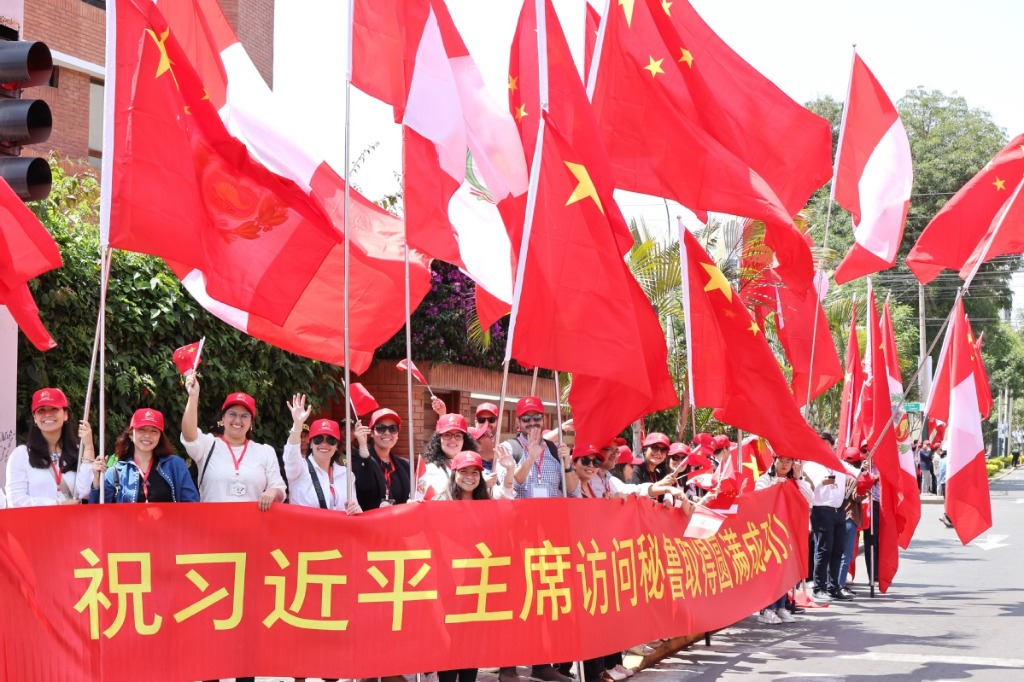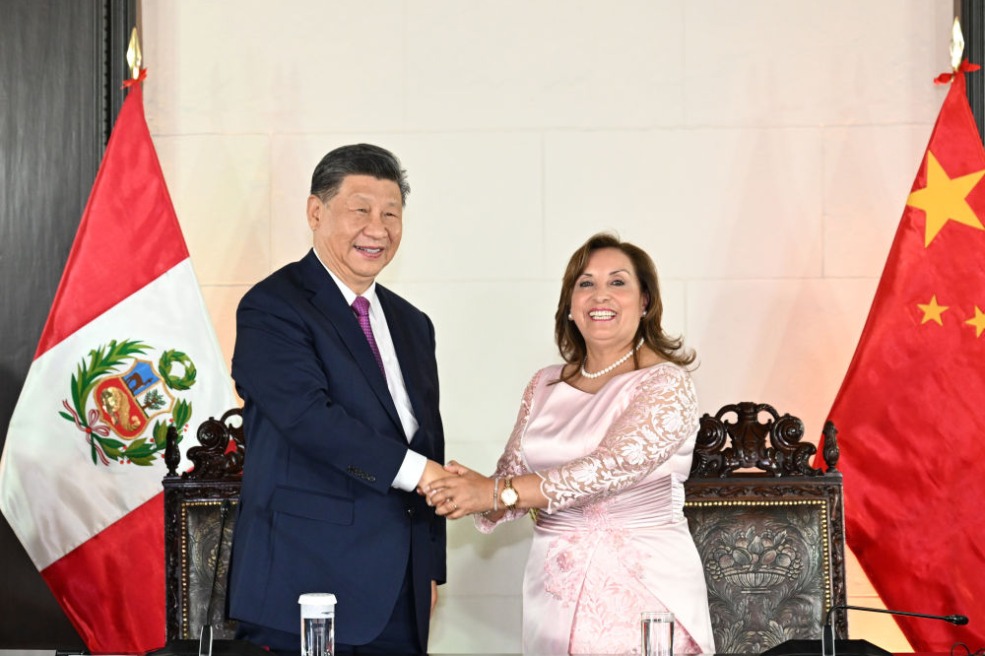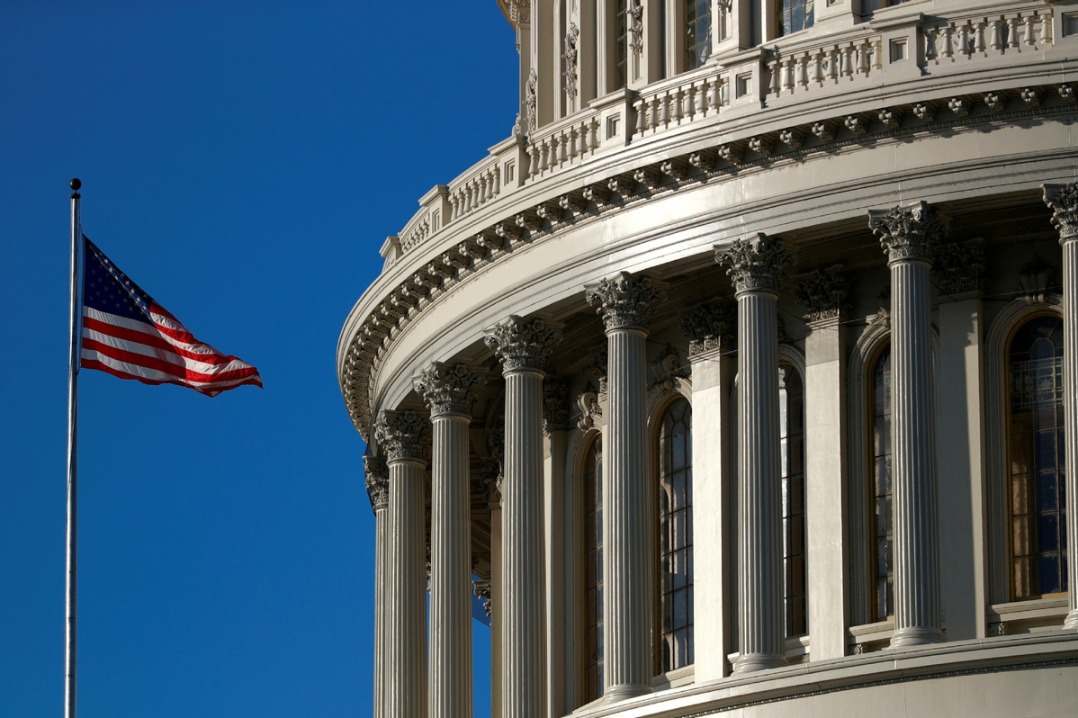What awaits Sino-US ties in Trump 2.0 era


The 2024 US presidential election result will have a significant effect on not only the US' domestic affairs but also its foreign relations.
After Joe Biden defeated Donald Trump in the 2020 presidential election, and a US-style rectification campaign was directed against Trump and his supporters, it seemed that the post-2020 US policy would continue at least through 2028. But Biden's withdrawal from the presidential race in 2024, yielding place to Vice-President Kamala Harris, was not enough to retain Democratic Party control of the presidency. Trump and his supporters convinced a majority of the American electorate that despite years of efforts to discredit him, he should be returned to office.
Trump's victory, many might think, will have a huge impact on US-China relations. But perhaps a more realistic view would suggest otherwise.
First, the course of US-China relations was set on its current path from around the time of the failure of the George W. Bush administration to secure a free trade area of the Americas, and its ideological basis began to take more definitive form during the Barack Obama administration and its Trans-Pacific Partnership model. It was at that point that the post-1945 vision of a unifying framework within which all states would have mutually beneficial economic, political, cultural and social relations was abandoned in favor of the development of a global vision that would effectively reflect the core values of a country under whose leadership and guidance clusters of intergovernmental relations could be formed and maintained.
At the same time, the exigencies of foreign relations, especially respecting national security, suggested the effective utility of separating to some extent the domestic economy from the international economy. What would emerge during the Trump administration from 2017 to 2020 as the "America first policy" would find reflection on the Chinese side as the "dual circulation development paradigm" that allows the domestic and overseas markets to reinforce each other, with the domestic market as the mainstay.
Second, none of the core principles or trajectories of these policy shifts changed much during the Biden administration. What did change in ways that were important for US-China relations was the shift in emphasis through which the emerging policies would be manifested. While the Trump administration focused, at least initially, on trade and economic advantage that emphasized tariffs and market access, at the start of the Biden administration, the focus had increasingly shifted to emphasize human rights and sanctions.
That was a delicate shift because the United States' approach to human rights and that of the Europe-based and the international community differed in some respects. It differed as well from the emerging principles of China's socialist approach to human rights. But it did align with political objectives in ways that were compatible with the fundamental principles of the US' political-economic model in normative terms.
It was that focus on human rights as a lever through which the relationship between China and the US could be managed that then marked the Biden administration's approach. It bears mentioning that the sanctions based on US human rights approach were part of a broader strategy to align national security and trade objectives with favored international human rights norms as applied by the US (US-style religion, labor and political rights especially).
Third, it follows that, at its core, there will not be much of a shift in the US' fundamental policy during Trump's second term in office other than the use of tariffs as an instrument of bilateral relations. But that does not mean that win-win mutually advantageous relations cannot be pursued. The opposite may prove to be true in some respects in relation to climate change, cooperation to improve trade or other projects and developing sound structures of economic engagement that avoid decoupling. Let us consider each in turn.
Trump's negative views on climate change governance are well known. What is forgotten is that those views are largely grounded in the role of the state in directing climate-related economic conduct, either through state — and objectives-based compliance mandates or policy guidance.
Trump favors economic enhancement through private enterprises, especially because they enhance the development of innovative productive forces. The limitation, of course, and now an old one, is with respect to the sharing of sensitive technologies. Still, there would be room for the Chinese and US sides to consider developing market transactions that may touch on climate-related technologies or operations which enhance mutually profitable economic activity.
More than climate related areas, general trade cooperation is likely the most potentially positive area where change in relations is possible. The possibilities of enhancing positive trade relations will have to be based on the negotiation of mutually beneficial pathways to trade by US and Chinese authorities.
On the Chinese side, that would include the private enterprises' access to the domestic market in ways that are viewed as reducing risk to tolerable levels. And on the US side, it would require some flexibility in granting Chinese State-owned enterprises access to the domestic market — in nonsensitive industries.
A focus on mutually advantageous benefits from trade, the parameters of which are negotiated at the state-to-state level, but which provide substantial protection for implementation through private enterprises is the essence of a possible successful positive turn in China-US trade relations — at least in those areas where agreement is possible.
Long-term successful and mutually beneficial trade relations between the US and the Chinese blocs (including their supply and production chains) ought to be the essential goal around which economic relations must be structured. Decoupling is in neither side's long-term interest. On the other hand the vision of an undifferentiated and tight integration among the US and the Chinese spheres of essential trading blocs is no longer tenable.
What is required is the development of mechanisms — portals, communication systems, frameworks — through which it would be possible to build bridges between the two sides in ways that meet the needs of each to preserve the ideological solidarity and coherence of their emerging trade and normative structures, while allowing well managed trade between them. Moreover, the possibility of US-China enterprise cooperation in joint investment in the US states remains substantially unexplored. That is a pity.
Taken together, putting US-China trade relations on a sounder footing is now possible. At the same time, it would be an error to assume that going forward the trade relations will somehow recapture the visions of the world order, whose aspirations vanished with the 2008 global financial crisis.
Realistic negotiations on a state-to-state level under a framework within which both sides can further develop and create opportunities for high quality production, sensitive to the national characteristics of each may provide a basis for better and more productive trade, cultural and social exchanges that will facilitate the continuing modernization of both sides.
In fact, US-China trade relations in areas of common interest could be more positive during the second Trump administration than they were during the outgoing Biden administration. Despite both sides being highly sensitive to national security and protection of their respective political and economic systems, it is possible that they might take steps to create a framework to build a community with a shared future for mankind, and engage in win-win cooperation in areas of mutual interest, as both sides are secure in their own sphere of activity.
The author is W. Richard and Mary Eshelman Faculty Scholar and professor of law and international affairs at Pennsylvania State University.
The views don't necessarily reflect those of China Daily.


































